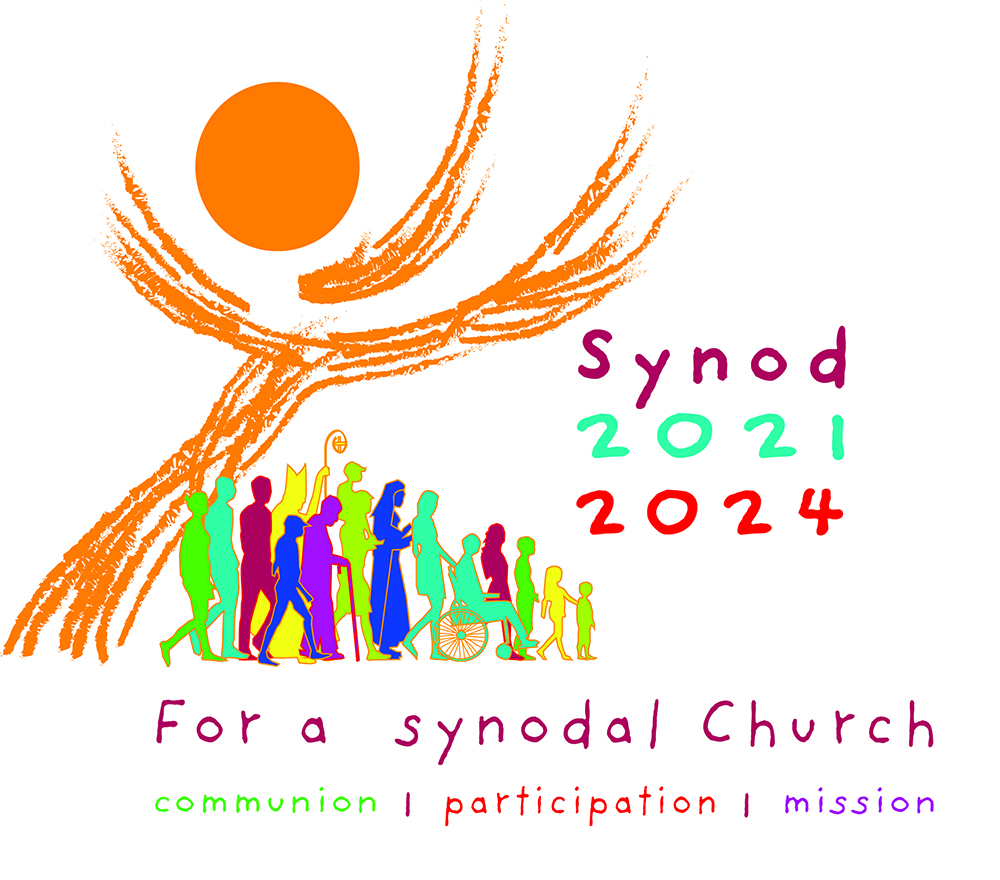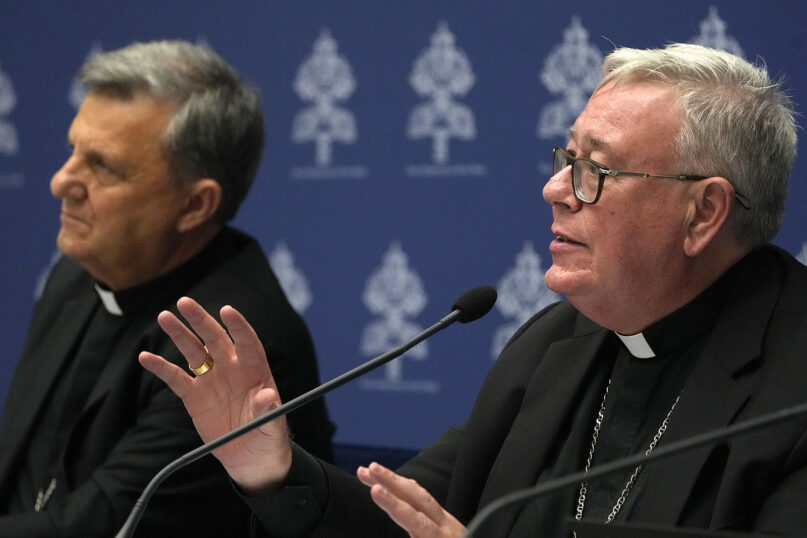VATICAN CITY (RNS) — As Catholic bishops from around the world prepare for a summit in Rome this fall, the Vatican released a document on Tuesday (June 20) outlining the topics they will take up, from LGBTQ+ inclusion to women priests, based on what lay Catholics say are the most urgent questions facing the church today.
The document, or Instrumentum Laboris in Latin, is the latest step in Pope Francis’ Synod on Synodality, which began in 2021 with a two-year-long consultation with the Catholic faithful on topics ranging from sexual ethics to power structures and the priesthood.
The ambitious project, spurred in part by Francis’ vision of more lay involvement and in part by a questioning that has grown out of the clergy sex abuse crisis, has heightened tensions between conservative and progressive factions in the church. But organizers told reporters at a news conference introducing the document that the synod is less about politics and more about listening to the Holy Spirit.
“We have no agenda. There was no conspiratorial meeting among cardinals about how we can add progressive points to the church,” said Cardinal Jean-Claude Hollerich, the relator general of the synod.
Since last fall, bishops have met in groups according to their home continents this year to discuss the questions raised by faithful at the national and parish level. The results of those discussions were submitted to the Vatican, which summarized the reflections in an Instrumentum Laboris, or working document, for their October meeting. The bishops will meet at the Vatican for a second session in the fall of 2024.
Though synods are traditionally limited to bishops, organizers said that laypeople will sit with the bishops in working groups during the summit, which will take place in the Vatican’s Paul VI Audience Hall, instead of the smaller Synod Hall, to allow for the larger number of representatives.
The plenary assembly of the synod will focus on the structural and ecclesial organization of the church and on the need to promote diversity and unity. The latter will involve examining church attitudes and policies about LGBTQ+ Catholics, the issue of female ordination to the diaconate and welcoming divorced and remarried couples as well as polygamous relationships.
The Instrumentum Laboris proposes questions such as “How can we create spaces where those who feel hurt by the church and unwelcomed by the community feel recognized, received, free to ask questions and not judged?” and “What concrete steps are needed to welcome those who feel excluded from the church because of their status or sexuality?”

Synod on Synodality logo. Courtesy image
Hollerich said Francis has seen and approved the questions that will be submitted. The pope has consistently promoted welcoming for LGBTQ+ individuals but has not made any change to official church teaching on sexuality, which views homosexuality as a sin.
“We need the synodal church to be a church that can announce the gospel,” said Cardinal Mario Grech, general secretary of the synod, at the news conference. “We need a church that can really pave the way so that it can meet humanity today.”
The Catholic LGBTQ advocacy group New Ways Ministry praised the language and openness of the Vatican document in a statement on Tuesday. “In this current document, the use of ‘LGBTQ+’ indicates that the Vatican is not only respecting the terms that members of this community prefer, but is also being more inclusive of various gender and sexual identities,” the statement read.
The Vatican document also addressed the need for women’s “participation in governance, decision-making, mission and ministries at all levels of the Church, to be addressed.” The document explicitly mentions the possibility of female deacons, meaning women could preach and preside at Mass but not perform any of the sacraments, such as consecrating hosts, performing marriages or hearing confessions.
In a statement on Tuesday, Casey Stanton, the co-director of Discerning Deacons, described the Vatican document as “a historic opportunity for the church,” while underlining the important roles that women already de facto occupy in the church.
Conservative news outlets and organizations have raised alarms that Francis’ experiment might imitate the Synodal Path, a process going on in the German church in which organizers have advocated for women priests and changing Catholic doctrine on homosexuality and have defied the Vatican by blessing same-sex couples.
“Without judging the colleagues in Germany, the two experiments are very, very different,” Hollerich said. “We are more for harmony,” he added.
While the many topics included in the 50-page document will no doubt be a challenge for the participants at the upcoming synod, Hollerich said that “it’s not granted that all the answers will be found in October.”





